Ratan Kumar: Pakistan’s famous child actor of the 1950’s passes away
Rest in peace
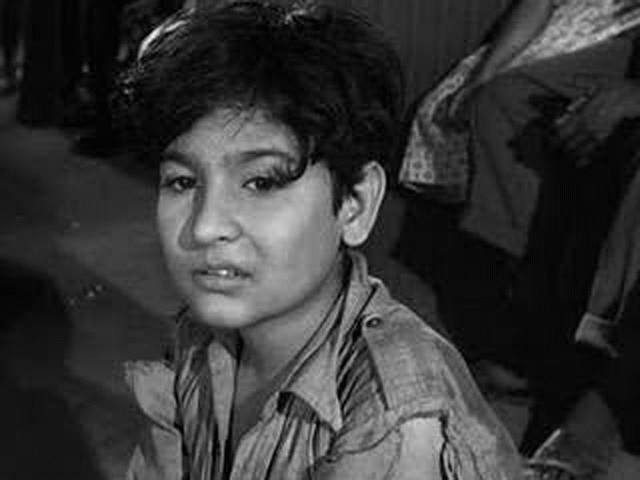
PHOTO: AUTHOR
PK-661 crash: Junaid Jamshed’s body identified
There in those moments, stars become legends and long after they are gone, people remember them. Screen immortalises them, and they return with another film, another song, to feel that feeling again. And there are some stars that give us memorable moments and then disappear. One such forgotten star was Ratan Kumar. Perhaps most famous for the patriotic Saleem Raza song Ao bachon sair karaen tumko Pakistani ki from 1957 film Bedari, Kumar was the most sought child actor in 1950s Bombay film industry, along with Baby Tabassum and Baby Naaz. After being admitted to the hospital for pneumonia about ten days ago, he breathed his last on December 12 noon, at the age of 75, in a hospital in California, US. He is survived by two sons, a daughter and seven grandchildren.
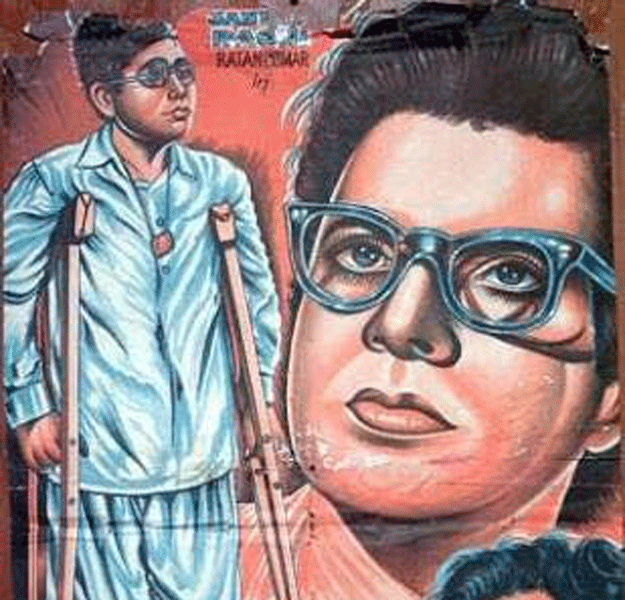 PHOTO: AUTHOR
PHOTO: AUTHORIn what eventually became his last interview, Kumar discussed with The Express Tribune his career and roller coaster of a life.
What many don’t know is Kumar’s real name was Syed Nazir Ali Rizvi. Upon Indian actor Prem Adib’s suggestion, Rizvi chose ‘Ratan Kumar’ as his stage name. “Ratan Kumar was Prem Adib’s character’s name in a film. He suggested I change my name. That was a trend in those times, like Yousuf Khan became popular as Dilip Kumar,” he said.
Born in 1941, Kumar’s first film was at the age of five. “In 1946, writer Krishan Chander wrote, directed and produced a film ‘Raakh’ and he was looking for a child actor. He was a family friend and that’s how Raakh became my debut film.”
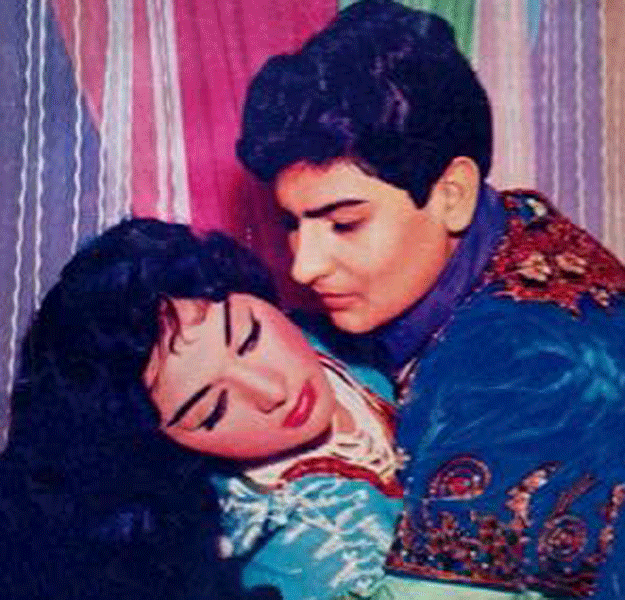 PHOTO: AUTHOR
PHOTO: AUTHORHowever, he didn’t become an overnight success phenomenon. Gradually, with more films and experience, he became a prominent child actor, having worked with some of the greatest names of the era, such as Meena Kumari (Baiju Bawra 1952), Santosh Kumar (Bedari 1957), Nargis (Angaray 1954), Madhubala (Buhat Din Hoye), and even director Bimal Roy (Do Bigha Zamin 1953), Baldev Raj Chopra (Yash Chopra’s elder brother) and Raj Kapoor (who produced his famous 1954 film Boot Polish).
“They had searched the whole country and chose me for the role of young ‘chote Baiju’ role in Baiju Bawra,” he recalled. Baiju Bawra went on to become a mega hit.
After the Partition, Kumar stayed in India with family. However, they migrated to Pakistan in 1956. Having accumulated a fan base and strong work experience in India, Kumar’s brother Wazir Ali, who was a renowned director and producer, established their own production house Film Hayat. The first film Bedari, under the banner, was a remake of Kumar’s 1954 Indian national award-winning film Jagriti, which was directed by Satyen Bose.
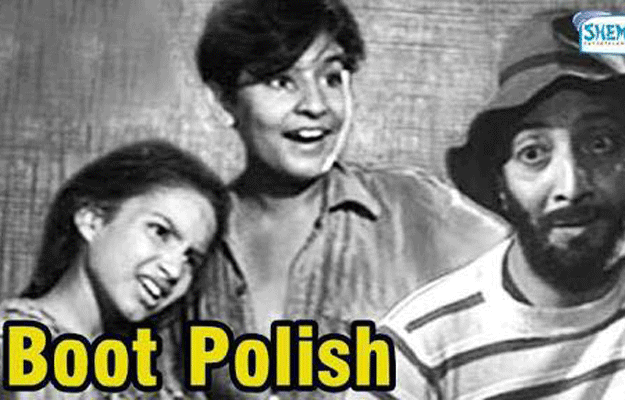 PHOTO: AUTHOR
PHOTO: AUTHORIn 1959, Kumar, at the age of 18, transitioned from a child actor to a lead hero, when he paired up with Neelo for Nagin. According to Kumar, the film completed the Golden Jubilee at the box office. “It did an all-time record business,” Kumar shared, proudly.
“Director Hassan Tariq remade the film in 1976 as Naag aur Nagin, starring Waheed Murad, but it failed,” he added.
However, like many child actors of his time, Kumar’s initial success didn’t translate well into his adult years. Despite acclaimed performances and a few more hits, he had reached his peak popularity as a child actor.
“Everyone has ups and downs in their career. When I started out, I was young. I didn’t know what I was doing. But as I grew older, I started understanding how it works,” Kumar said.
The Express Tribune staffer meets sudden death
He added, “When it comes easy to you, you don’t learn. That’s why I teach my children not to take anything for granted.”
When asked whether he remembered any special moment from his early days in the showbiz, Kumar said, “Everyday was different. Every day, we were dealing with a new situation. That’s how it is on a film set. You learn with each film. I personally learned a lot from Bimal Roy.”
Kumar made his directorial debut in 1969 with Daastan. He continued to act sporadically until the 70s. In 1977, a tragedy struck and Kumar’s four-year-old daughter died in an accident in Lahore. “That was when I quit everything. I didn’t want anything to do with the business after that.”
Celebrities mourn Prince's death
In 1979, Kumar left the country never to return again. “I just couldn’t do it,” he had said. “For two decades, I did not have it in me to return to the same place again.”
In the late 60s, Kumar started working for National Carpets and after travelling to countries like Germany selling Oriental carpets, eventually settled down in the US.
The applause after a good take, shining lights and the aura of a star is something all showmen can’t get enough of. When asked, if he ever got the itch to return to the film industry, he recalled his encounter with Indian megastar Raj Kapoor in early 80s. “It was around ’83 or ’84 and my family came to know that Raj Kapoor was in New York City for a film shoot,” he said. “We resided in New Jersey at the time and upon their insistence, I got in touch with him through his manager. When I told him my name, he instantly recognised me and so, I drove my family to meet him at his hotel room.”
Celebrities mourn Muhammad Ali's death
He continued, “He asked me to come back to India. He said, “Your films are as fresh in people’s minds as they were in 1950s.” But I didn’t go.”
1996 marked a turn in his life, when his lungs collapsed twice in the same year. “But it was the third time, the worst of them all, in 2000, when left me completely paralysed. I was even in coma for eight days,” Kumar recalled.
However, he got better. “When I regained consciousness, I was paralysed and doctors had said, I wouldn’t walk again. In four to five months, I was driving again.”
Although in his last years, he was on constant portable oxygen tank support, Kumar was a grateful man who never complained about anything. “Why do we complicate life? It’s simple. If we try to understand it, it’s quite simple. I take every day as the last day of my life and enjoy it as much as I can. Jo ho gaya so ho gaya (What’s happened is over). I’m really blessed that I achieved all that I could, and I’m just thankful to Allah for all he has given me.”
After his illnesses increased, there was not much left to do for Kumar. When asked how he spent his days, he said, “I just try to relax and reflect. I also write poetry sometimes.”
Why Muhammad Ali's star is on the wall, not the Walk of Fame
A few days after the phone interview, in one of our last conversations, Kumar sent his poem in a Whatsapp message.
He wrote, “I dedicate my poem to those innocent people who are killed around the globe every day without any rhyme or reason. May Allah bless their souls, Aameen.
Lahoo jo beh raha hai
woh hum se keh raha hai
Bahaya hai mujhe nahaq kissi ne
Bahaya hai mujhe nahaq kissi ne
Lagi hai bheer jo aitraaf mere
yeh sub hee jaante hain
Mere qatil ko woh pehchante hain
Tou phir khamosh kyun hain
Hamesha ki tarah phir aaj sub ne
Zubanain band karleen
Aankhoun pe patti charhai hai
Hain andhay kutch naheen dekha
Na di koi gawahi hai
Na koi shor utha hai
Na koi cheekh goonji hai
Gali meri hamesha ki tarah
Phir aaj goongi hai
Ikkatha ho ke saare
shor burpa kyun nahin karte
Jo cheekhain dub gaee hain shehar ki galyoun mein charoun soo
unhee chekhoun ko dobarah se zinda kyun nahee kerte
humain yeh kerna hoga
werna yeh lahoo behta rahega
aur youn hi kehta rahega
bahaya hai mujhe nahaq kissi ne
bahaya hai mujhe nahaq kissi ne
mein apne qatiloun ko jaanta hoon
mein unke chehroun ko pechanta hoon
mein khud hi aik din apne lahoo se
qaatiloun ke haath rang doon ga
yeh surkhi khoon ki unn qatiloun ke moonh pe mull doonga
Have something to add to the story? Share it in the comments below.





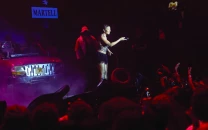




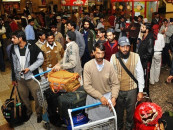








COMMENTS
Comments are moderated and generally will be posted if they are on-topic and not abusive.
For more information, please see our Comments FAQ